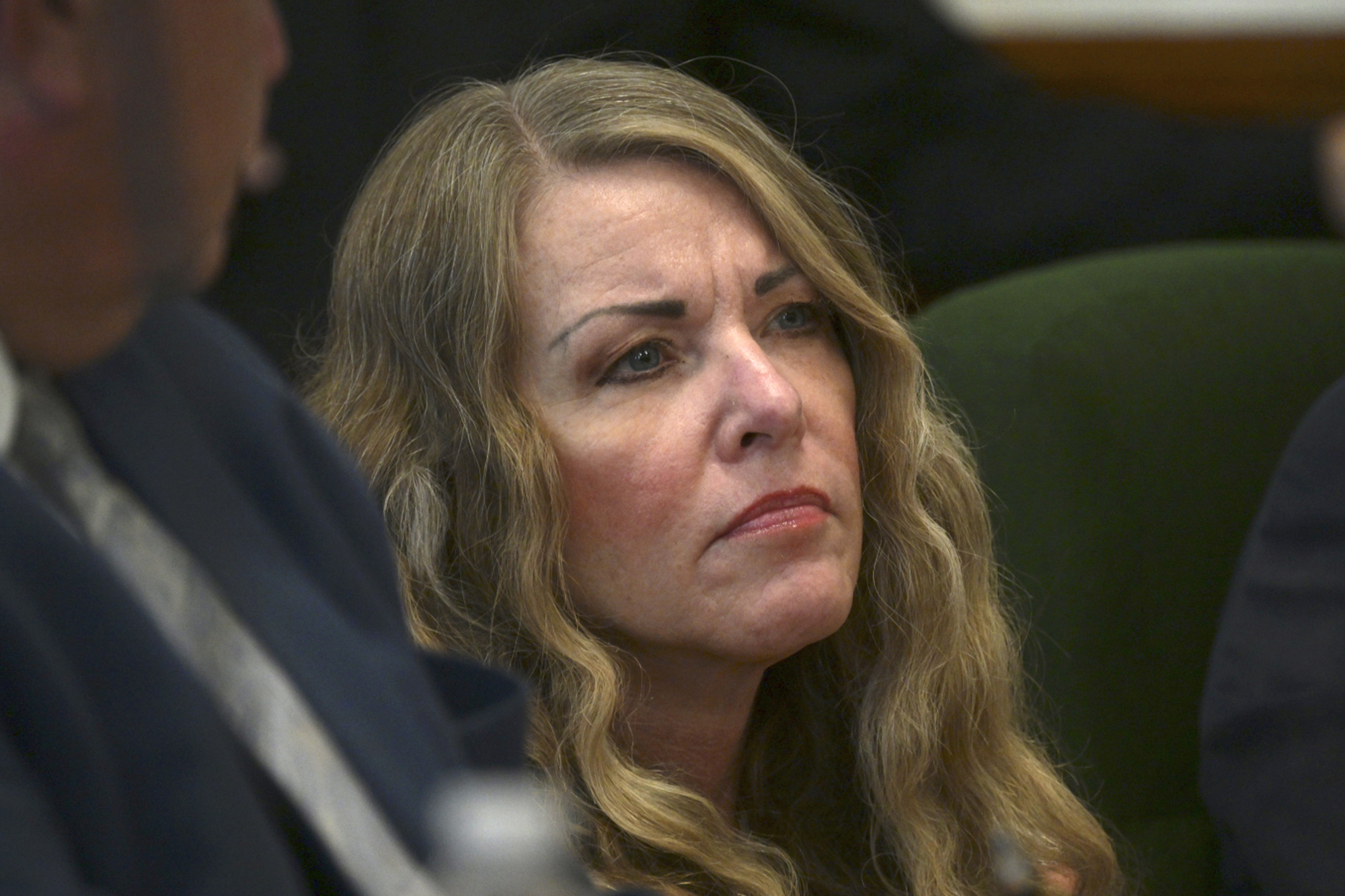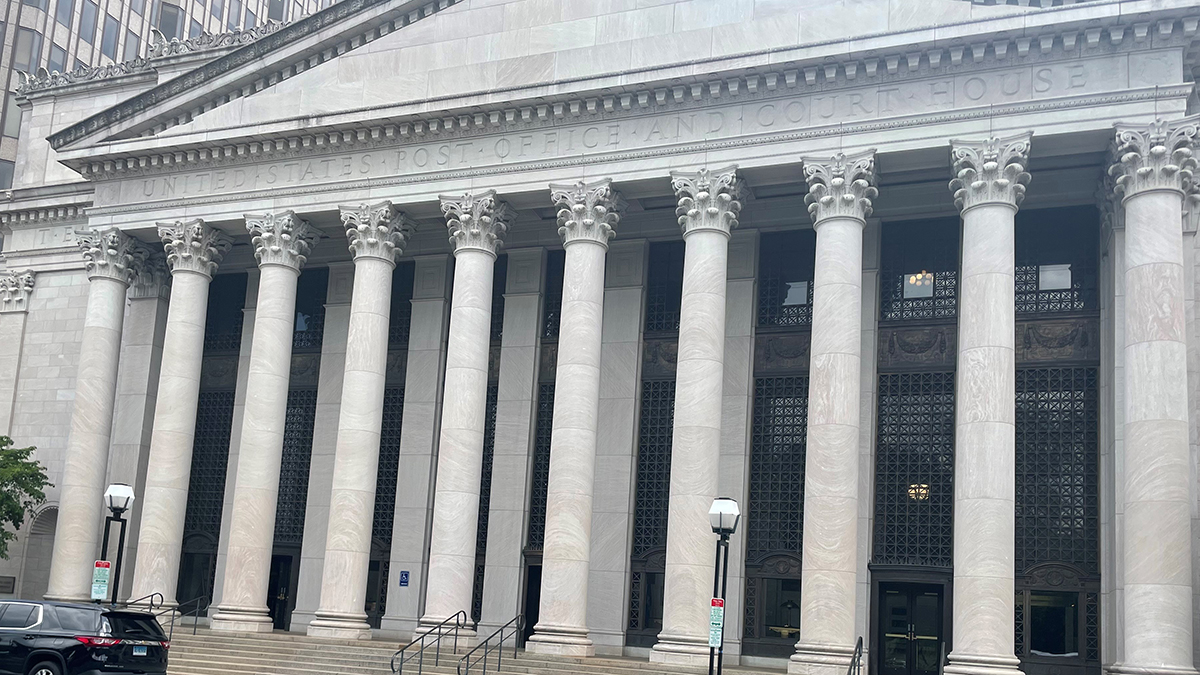Lori Vallow Daybell Convicted: "Doomsday Mom" Faces Justice
'Doomsday Mom' Lori Vallow Daybell Found Guilty: Unraveling the Twisted Web of Murder and Conspiracy
Introduction: A Verdict Heard Around the World
The case of Lori Vallow Daybell, dubbed the "Doomsday Mom" by the media, has captivated and horrified the world. Why? Because it's a story filled with bizarre religious beliefs, missing children, and a string of deaths that are far from coincidental. Now, the latest chapter in this dark saga has concluded with a Maricopa County Superior Court jury finding Vallow Daybell guilty of conspiracy to commit first-degree murder in the death of her fourth husband, Charles Vallow. Let’s delve into the details of this chilling case and try to understand the motives behind these unimaginable acts.
The Fatal Shooting: A Question of Self-Defense?
The key event that led to this conviction was the July 2019 shooting of Charles Vallow. According to Lori Vallow Daybell, her brother, Alex Cox, acted in self-defense when he shot Charles. Was it truly self-defense, or was it a calculated act in a larger conspiracy? Vallow Daybell claimed Charles got into an argument with her daughter, Tylee Ryan, and threatened her with a bat. She stated he was at her Chandler, Arizona home to take their son, Joshua "JJ" Vallow, to school. This claim of self-defense was ultimately rejected by the jury.
Alex Cox: The Alleged Trigger Man
Alex Cox, Lori Vallow Daybell's brother, played a central role in the events leading up to and following Charles Vallow's death. He was the one who pulled the trigger, but tragically, he died later that year from a pulmonary embolism, never facing charges himself. This created a convenient, if tragic, loophole that Lori Vallow Daybell attempted to exploit. Could Alex Cox have revealed more details about the true nature of the events if he were still alive?
The Idaho Conviction: A Pattern of Violence
This isn't Lori Vallow Daybell's first conviction. In Idaho, she was found guilty in 2023 of killing her two children, Tylee Ryan and Joshua "JJ" Vallow, as well as her husband Chad Daybell's first wife, Tammy Daybell. She's already serving a life sentence without the possibility of parole for those heinous crimes. Does this Arizona conviction just add another layer of justice, or does it reveal a deeper, more disturbing pattern of violence and manipulation?
Life Without Parole: Is Justice Served?
The thought of serving life in prison without the possibility of parole must be frightening. This seems to be justice for the victims of Lori Vallow Daybell. But is it really? What does it mean for the families left behind? While it brings a sense of closure, it can never fully heal the wounds inflicted by these unimaginable acts.
A Web of Conspiracy: Who Else Was Involved?
The question remains: how much was Chad Daybell, Lori Vallow Daybell's current husband, involved in these events? He also faces charges related to the deaths of Tammy Daybell and the children. Was Lori Vallow Daybell acting alone, or was she the puppet master in a larger, more complex conspiracy? Did she use her own family as pawns?
Chad Daybell: The Doomsday Prepper
Chad Daybell, a self-proclaimed doomsday prepper and author, shared Lori Vallow Daybell's apocalyptic beliefs. Their shared fascination with the end of the world appears to have played a significant role in the events that unfolded. Did their shared beliefs lead them down a dark and destructive path, culminating in murder?
"Zombies" and Religious Extremism: The Disturbing Motives
One of the most disturbing aspects of this case is the bizarre religious beliefs held by Lori Vallow Daybell and Chad Daybell. They reportedly believed that people could be possessed by dark spirits, turning them into "zombies." This twisted worldview allegedly justified their actions, leading them to believe they were ridding the world of evil.
The "Light vs. Dark" Mentality
The concept of "light versus dark" became a dangerous obsession for the couple. They assigned numerical scores to people based on their perceived goodness or evil. This simplistic and distorted view of morality allowed them to dehumanize their victims, making it easier to justify their actions.
The Trial: A Battle of Narratives
Lori Vallow Daybell initially represented herself at trial, a decision that raised many eyebrows. Why would she choose to defend herself in such a complex and high-profile case? Was it a misguided attempt to control the narrative, or did she genuinely believe in her own innocence? Did she think she could manipulate the jury with her charm?
The Prosecution's Case: Unraveling the Lies
The prosecution presented a compelling case, piecing together evidence that exposed the inconsistencies in Lori Vallow Daybell's stories. They presented evidence of her obsession with money, her infatuation with Chad Daybell, and her willingness to do whatever it took to achieve her goals. Their arguments proved too strong for the jury to ignore.
The Impact on the Children: A Tragedy Beyond Words
The most heartbreaking aspect of this case is the tragic loss of Tylee Ryan and Joshua "JJ" Vallow. These innocent children were victims of their mother's twisted beliefs and actions. Their lives were cut short in the most brutal way imaginable. How do we even begin to process such a profound loss?
Remembering Tylee and JJ: Their Lives Mattered
It's important to remember Tylee and JJ as individuals, not just victims in a sensational case. They were children with dreams, hopes, and potential. Their memories deserve to be honored and cherished.
The Media Frenzy: A Nation Obsessed
The Lori Vallow Daybell case has been a media sensation from the very beginning. The bizarre details, the missing children, and the alleged religious extremism have captivated the public. But has the media coverage been responsible, or has it sensationalized the tragedy?
The Ethics of True Crime Reporting
True crime stories are inherently fascinating, but it's important to remember the real people involved and the pain they have endured. Reporters must strive for accuracy and sensitivity, avoiding sensationalism and exploitation.
The Aftermath: Healing and Moving Forward
The conviction of Lori Vallow Daybell brings a sense of closure, but the healing process will be long and difficult for the families and communities affected by this tragedy. How do we move forward after such profound loss and betrayal?
Finding Hope Amidst the Darkness
Even in the darkest of times, there is always hope. By supporting each other, honoring the memories of the victims, and learning from this tragedy, we can find a path towards healing and a brighter future. Let us remember the victims and strive to prevent similar tragedies from happening again.
Conclusion: Justice Prevails, But Scars Remain
Lori Vallow Daybell's conviction for conspiring to kill her fourth husband marks another step in holding her accountable for the series of tragic events surrounding her. While she is already serving a life sentence for the murders of her children and Chad Daybell's first wife, this additional conviction underscores the extent of her involvement in the deaths and conspiracies that have defined her life. The case serves as a stark reminder of the dangers of religious extremism, manipulation, and the devastating consequences of violence. While justice has been served, the scars left behind by these heinous acts will undoubtedly remain for years to come.
Frequently Asked Questions
Here are some frequently asked questions about the Lori Vallow Daybell case:
- What was Lori Vallow Daybell convicted of in Arizona?
She was convicted of conspiracy to commit first-degree murder in the death of her fourth husband, Charles Vallow. - What happened to Lori Vallow Daybell's brother, Alex Cox?
Alex Cox, who shot Charles Vallow, died later that year from a pulmonary embolism and was never charged. - What are some of the bizarre beliefs held by Lori Vallow Daybell and Chad Daybell?
They believed that people could be possessed by dark spirits and turn into "zombies," and they assigned numerical scores to people based on their perceived goodness or evil. - What is Lori Vallow Daybell's current sentence?
She is already serving a life sentence without the possibility of parole in Idaho for the murders of her two children and Chad Daybell's first wife. - What role did Chad Daybell play in these events?
Chad Daybell also faces charges related to the deaths of Tammy Daybell and the children, suggesting he may have been involved in the conspiracies.


